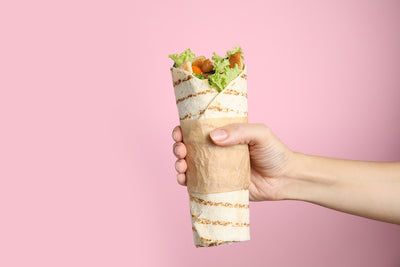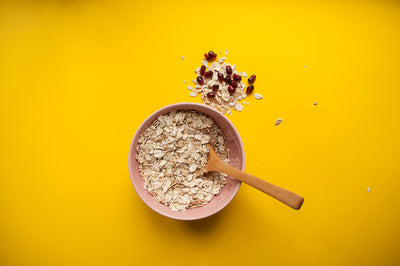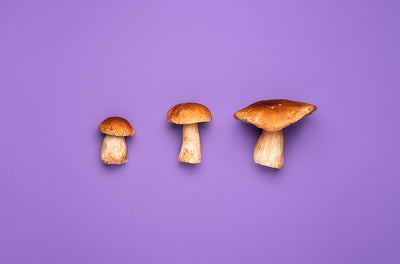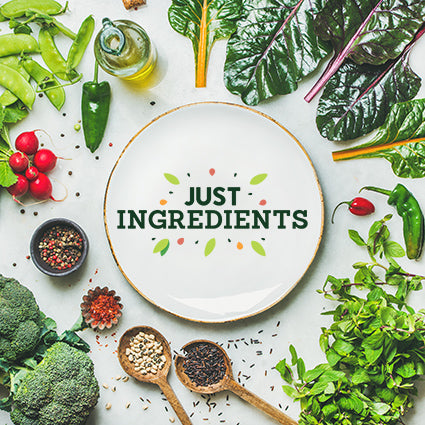Going Organic 🌱
What is Organic?
Organic is good for you 💚 it’s good for animals 🐝 and it’s good for the environment too 🌎
The standards for organic food are laid down in European law, so a license is required to grow, process and market organic products. Any food labelled as organic is subject to strict rules and all organic farms and companies are inspected at least once a year to make sure they are reaching the standards required; organic farming and food production is not easy and takes real commitment and attention to detail, backed up by rigorous, independent inspection and certification.
Organic is a symbol of trust and put simply, it means higher levels of animal welfare, lower levels of pesticides, no manufactured herbicides or artificial fertilisers, and more environmentally sustainable management of farmland and the natural environment 🌱
Why you should choose organic?
KNOWING WHAT’S IN YOUR FOOD 🍴
When you choose organic, the product you’re consuming is fully traceable from farm to fork, so you can be sure of what you’re consuming.
Avoiding pesticides and additives in food is one of the biggest motivations to choose organic. It’s an easy way to avoid GM ingredients, hydrogenated fats and controversial artificial food colours, and preservatives including sodium benzoate, aspartame and food colour tartrazine – these are all banned under organic standards. Only 55 of the 338 food additives approved for use across the EU are permitted in organic food; generally, permitted additives are derived from natural sources such as citric acid from lemons.
Use of antibiotics in Europe remains more than twice as high in animals as in humans. No system of farming has overall lower use of antibiotics as Soil Association standards that ban the routine use of antibiotics.
Genetically modified crops and ingredients are also banned under European Union and international organic standards. To meet organic standards, farmers and processors cannot use GMOs and must show that they are protecting their products from contamination with prohibited products.
FEWER PESTICIDES ⚠️
Pesticides were detected in almost 43% of the foods tested by the UK Government in 2015; only 5% of organic foods tested the same year, were found to have traces of pesticides. Many of these contain more than one pesticide – for example, 87% of pears and 79% of grapes contained traces of multiple pesticides. One way to reduce your exposure to pesticides is to eat more organic food. It really is as simple as choosing organic and ingesting less pesticides.
Research suggests that if all farming in England and Wales was organic, pesticide use would drop by 98%. In 2015, over 17,800 tonnes of pesticides were used on British farms to kill weeds, insects and control crop diseases. In the 20 years between 1994 and 2014, the use of glyphosate on British cereals increased by 700% and over a third of UK cereal crops were sprayed with glyphosate in 2013.
The best way to reduce your exposure to pesticides in all food is to buy organic; certified organic food, including all fruit and vegetables, processed food and dairy and meat products will overall contain less pesticides. Soil Association organic farmers are able to use just 20 pesticides, derived from natural ingredients, including citronella and clove oil and only under very restricted circumstances.
BETTER FOR WILDLIFE 🐝
The UK government has said that organic farming is better for wildlife, causes lower pollution from sprays, produces less carbon dioxide and fewer dangerous wastes. Over half of Britain’s wildlife species have declined since 1970, and more than one in ten are currently facing extinction. Intensive farming practices have been identified as the primary drivers of these declines. Organic farmers don’t use herbicides at all and fungicides and insecticides are severely restricted. This is good news for the birds and bees that live on organic farms which are havens for wildlife and provide homes for bees, birds and butterflies. On average, plant, insect and bird life is 50% more abundant on organic farms and are also home to 30% more species on average which proves organic farming encourages wildlife. What’s not to love about that?
BETTER FOR THE PLANET 🌎
Did you know organic farming has significant potential to help combat climate change?
Organic farming reduces environmental pollution and the release of greenhouse gases from food production by severely restricting the use of manufactured chemical fertilisers and pesticides. Instead, organic farmers rely on developing a healthy, fertile soil and growing a mixture of crops.
Soils store more carbon than the atmosphere and all of the world’s plants and forests combined, which means that soil is one of our most important weapons in the fight against climate change; if half of all farming in the European Union converted to organic by 2030, we could cut almost a quarter (23%) of the EU’s greenhouse gas emissions simply by increased soil carbon sequestration and reduced use of mineral fertilisers.
No system of farming does more to reduce greenhouse gas emissions from agriculture and protect natural resources. When it comes to the environment, research published in the British Journal of Nutrition found significant differences between organic and non-organic farming.
How to go organic
Going organic is easier than you’d think. Food, health, beauty and textile products that hold the Soil Association organic symbol have been produced to the highest possible environmental standards. When you see the organic symbol, you can be sure what you buy has been produced to the highest standards.
Getting organic certification isn’t easy and when you buy an organic product you know what you’re buying really is what it says on the tin.
Take part in Organic September, a month-long campaign which aims to raise awareness of Organic products and the brands, producers and farmers who bring them to us in the UK. Take part in Organic September.
Keep up to date
Follow @SoilAssociation to keep up to date and follow us @JustIngredients or @JustIngredientsTrade for all things organic.
Get organic delivered to your door
Go organic with the click of a button by shopping retail organic here and here for trade.




